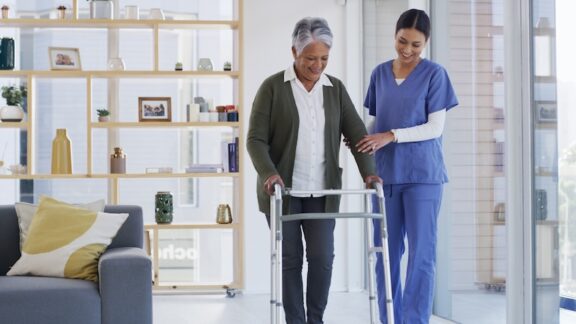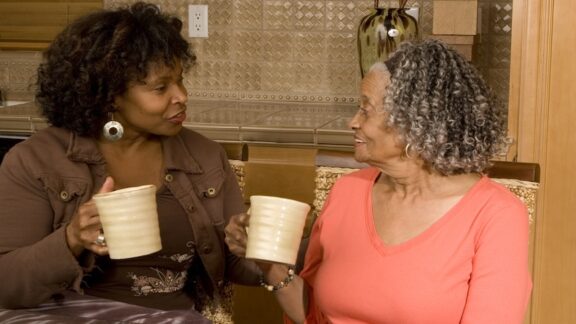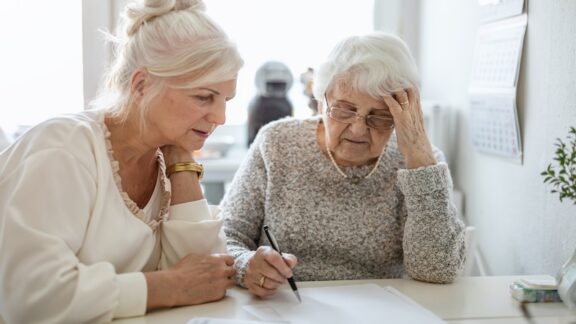Elder self-neglect is a public health issue affecting millions of older adults each year. It manifests itself in an older person in the form of refusal or failure to provide himself/herself with adequate food, water, clothing, shelter, personal hygiene, medication, and safety precautions. In the United States, self-neglect has been the primary type of elder abuse cases, comprising nearly 42% of those reported to the Adult Protective Services (APS). Because of its prominence, it’s important to know the signs of elder self-neglect.
What is elder self-neglect?
The 2010 Elder Justice Act (EJA) defined elder self-neglect as the “inability, due to physical or mental impairment or diminished capacity, to perform essential self-care.” However, one can find different definitions in other countries, states, and organizations. For instance, the U.S. Department of Health & Human Services defines elder self-neglect as “behavior of an elderly person that threatens his/her own health or safety and generally manifests itself by failure to provide himself/herself with adequate food, water, clothing, shelter, personal hygiene, medication (when indicated), and safety precautions.”
The lack of consensus on an operational definition substantially hinders a better understanding of self-neglect. Nonetheless, researchers have learned enough about the issue to offer some invaluable insights.
What are the symptoms and signs of elder self-neglect?
Detecting and preventing self-neglect among the elderly should be a priority. There are many forms of elder self-neglect, including failure to take medications or clean their homes. Some will stop bathing and grooming themselves.
Studies have found that seniors without social networks are more likely to fall into a pattern of self-neglect. The National Center on Elder Abuse recommends that during frequent visits to an elderly loved one, family members and friends should look for signs, such as a decline in reasoning, mobility, and the ability to accomplish the activities of daily living (ADLs).
Here are a few of the most frequent signs of elder self-neglect:
- Neglecting to seek assistance for medical issues
- Confusion
- Symptoms of depression
- Signs of poor hygiene in self-care and their environment
- Excessive drinking or drug use
- Frequent falls
- Hoarding items or animals
- Symptoms of poor physical health
What causes self-neglect in seniors?
As mentioned earlier, self-neglect can result from any mental or physical illness affecting the senior’s physical abilities, energy levels, attention, organizational skills, or motivation.
There are two types of self-neglect:
- Intentional (active) self-neglect: Sometimes, an older person chooses to self-neglect by refusing to go to a doctor when they are not feeling well.
- Non-intentional (passive) self-neglect: In some cases, a senior will have a health-related condition – dementia, for instance – that causes them to forget to take care of their hygiene.
How to respond to elder self-neglect
If you believe you have seen a case of elder self-neglect, get in touch with the local Adult Protective Services office for further assistance. APS offices offer social services to abused, neglected, or exploited seniors or adults with specific disabilities. The National Adult Protective Services Association can provide a list of APS offices throughout the country.
Also, if self-neglect hurts the senior’s finances or health care, and if they still have the mental capacity, they could sign a power of attorney naming a trusted individual or a professional fiduciary as their agent. The agent can then make financial or health care decisions on the senior’s behalf. An estate planning attorney can prepare a power of attorney, or you may be able to use a standardized do-it-yourself form.
In some cases when there are signs of elder self-neglect, a conservatorship or guardianship is necessary. For example, the senior has diminished capacity, resists intervention, or refuses to sign a power of attorney. The court will appoint and supervise a conservator or guardian with authority to manage the personal, financial, and health care decisions of an older adult who cannot do it independently.




